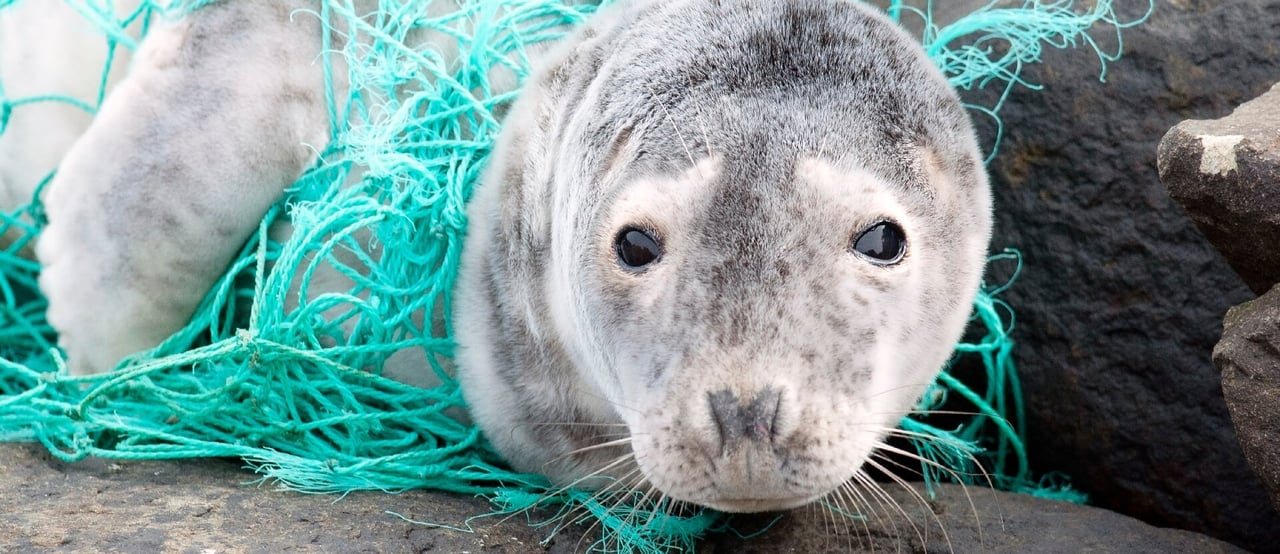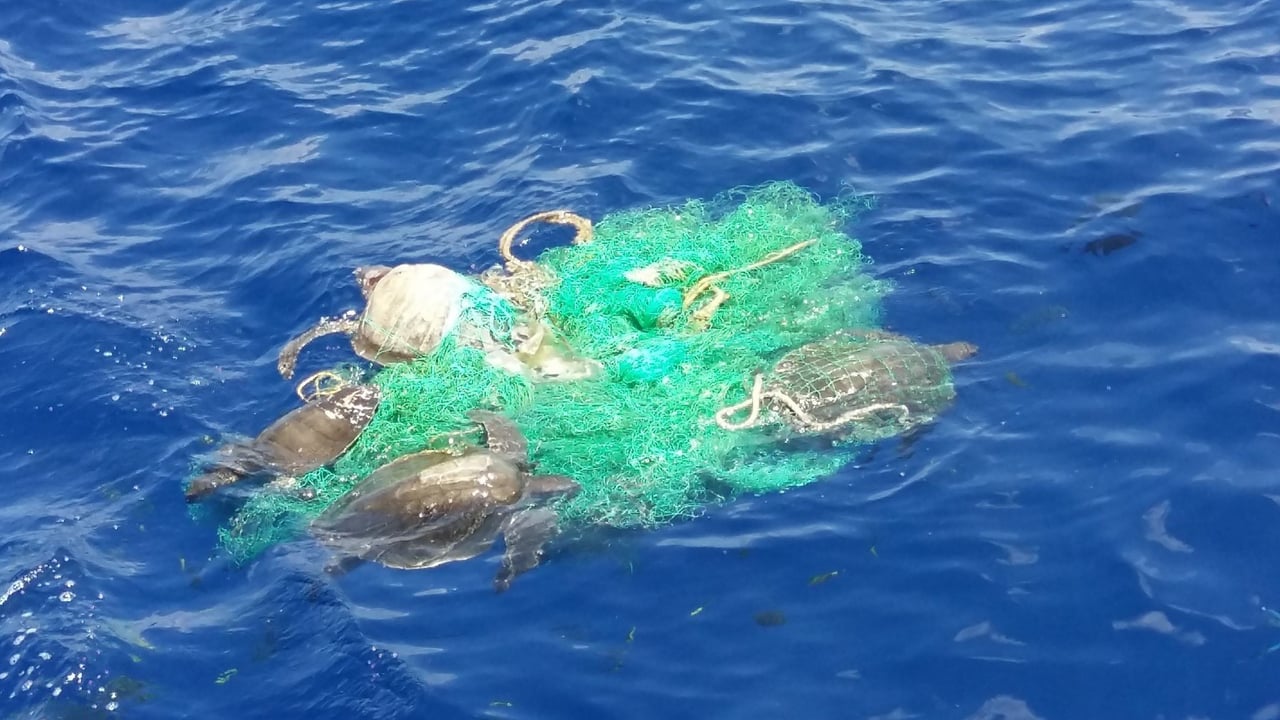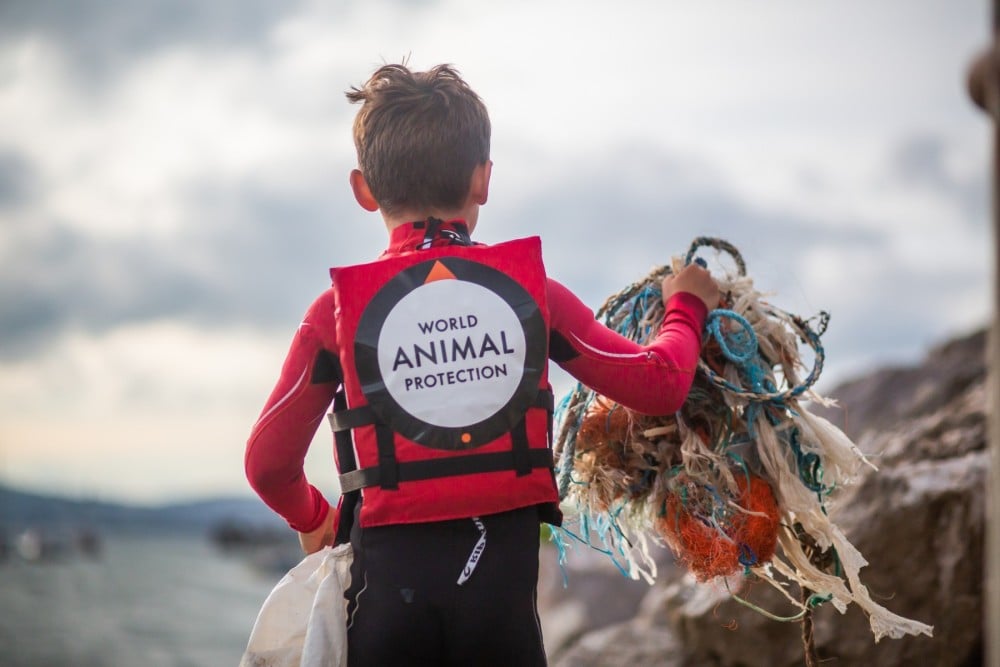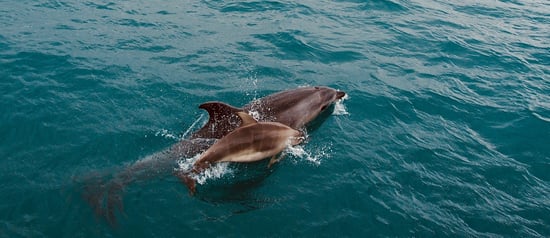What we do
Working around the world to end the needless suffering of animals by inspiring people to change animals’ lives for the better.

Abandoned, lost and discarded nets, lines and traps are one of the biggest threats to our sea life.
A staggering 640,000 tonnes of gear is left in our oceans each year. That gear traps, injures, mutilates and kills hundreds of thousands of whales, seals, turtles and birds annually.
By bringing together governments, businesses and fishing organisations, we protected sea life and move towards a future free from the ghost fishing gear threat.

As part of our Sea Change campaign, we worked in three ways to protect animals from ghost fishing gear. We:

Working around the world to end the needless suffering of animals by inspiring people to change animals’ lives for the better.
Your support is key to bringing an end to animal suffering across the world and here in Aotearoa New Zealand

Join thousands of animal lovers fighting to protect wildlife and give farmed animals good lives. Sign up now to receive emails with all the ways you can help.
Sign up